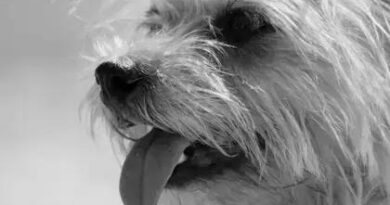What is: Bile duct issues in dogs
What Are Bile Duct Issues in Dogs?
Bile duct issues in dogs refer to a range of conditions that affect the bile ducts, which are crucial for the digestion of fats and the elimination of waste products from the liver. These issues can lead to serious health complications if not diagnosed and treated promptly. Understanding the signs and symptoms of bile duct problems is essential for dog owners to ensure their pets receive the necessary veterinary care.
Common Symptoms of Bile Duct Issues
Dogs suffering from bile duct issues may exhibit a variety of symptoms, including jaundice, which is characterized by a yellowing of the skin and eyes. Other common signs include vomiting, diarrhea, loss of appetite, and lethargy. In some cases, dogs may also experience abdominal pain or swelling. Recognizing these symptoms early can be vital in addressing the underlying problems effectively.
Causes of Bile Duct Problems in Dogs
There are several potential causes of bile duct issues in dogs, including infections, tumors, and congenital abnormalities. Inflammatory conditions such as cholangitis can also lead to bile duct obstruction. Additionally, certain breeds may be more predisposed to these issues due to genetic factors. Understanding the root causes can help veterinarians tailor appropriate treatment plans for affected dogs.
Diagnosis of Bile Duct Issues
Diagnosing bile duct issues in dogs typically involves a combination of physical examinations, blood tests, and imaging techniques such as ultrasound or X-rays. These diagnostic tools help veterinarians assess the condition of the liver and bile ducts, identifying any blockages or abnormalities. A timely diagnosis is crucial for effective treatment and management of the condition.
Treatment Options for Bile Duct Issues
Treatment for bile duct issues in dogs varies depending on the underlying cause. In some cases, medications may be prescribed to manage infections or inflammation. Surgical intervention may be necessary to remove obstructions or tumors. Additionally, dietary changes and supportive care can play a significant role in the recovery process, helping to restore normal liver function.
Preventive Measures for Bile Duct Health
Preventing bile duct issues in dogs involves maintaining a healthy lifestyle, including a balanced diet and regular veterinary check-ups. Routine blood tests can help monitor liver function and detect any early signs of bile duct problems. Additionally, keeping dogs away from toxic substances and ensuring they receive proper vaccinations can contribute to overall liver health.
The Role of Diet in Bile Duct Health
A well-balanced diet is essential for maintaining bile duct health in dogs. Foods rich in antioxidants, omega-3 fatty acids, and fiber can support liver function and reduce the risk of bile duct issues. Consulting with a veterinarian about the best dietary options for your dog can help ensure they receive the necessary nutrients to promote optimal health.
Prognosis for Dogs with Bile Duct Issues
The prognosis for dogs with bile duct issues largely depends on the severity of the condition and the timeliness of treatment. Early intervention can lead to a favorable outcome, allowing dogs to return to their normal activities. However, untreated bile duct problems can result in serious complications, including liver failure, which can be life-threatening.
When to Seek Veterinary Care
Dog owners should seek veterinary care if they notice any signs of bile duct issues, such as jaundice, vomiting, or changes in appetite. Prompt attention to these symptoms can make a significant difference in the outcome for the affected dog. Regular veterinary visits are also crucial for monitoring liver health and preventing potential bile duct problems.



